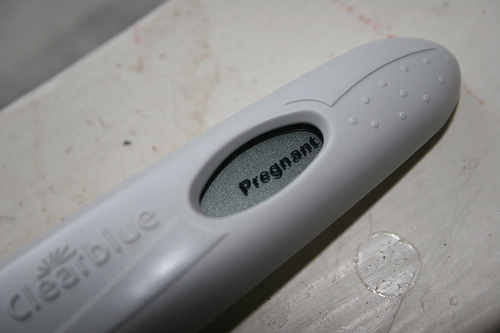Unintended Pregnancies Rise For Poor
NEW YORK - A new study from the Guttmacher Institute reports that as the rate of unintended pregnancies continues to decrease among wealthy or educated women, the rate among women who fall below the federal poverty line has climbed.
 A new analysis from the Guttmacher Institute shows that following a considerable decline between 1981 and 1994, the overall U.S. unintended pregnancy rate has remained essentially flat—about 5% of U.S. women have an unintended pregnancy every year.
A new analysis from the Guttmacher Institute shows that following a considerable decline between 1981 and 1994, the overall U.S. unintended pregnancy rate has remained essentially flat—about 5% of U.S. women have an unintended pregnancy every year.
However, the rate has increased dramatically among poor women, while among higher-income women it has continued to decrease substantially, according to “Unintended Pregnancy in the United States: Incidence and Disparities, 2006,” by Lawrence B. Finerand Mia R. Zolna.
In 1994, the unintended pregnancy rate among women with incomes below the federal poverty line was 88 per 1,000 women aged 15–44; it increased to 120 in 2001 and 132 in 2006—a 50% rise over the period.
At the same time, the rate among higher-income women (those with incomes at or above 200% of the poverty line) fell from 34 in 1994 to 28 in 2001 and 24 in 2006—a 29% decrease.
Poor women’s high rate of unintended pregnancy results in their also having high—and increasing—rates of both abortions (52 per 1,000) and unplanned births (66 per 1,000).
In 2006, poor women had an unintended pregnancy rate five times that of higher-income women, and an unintended birth rate six times as high.
Analyzing U.S. government data from the National Survey of Family Growth and other sources, Finer and Zolna found that of the 6.7 million pregnancies in 2006, nearly half (49%) were unintended.
Although some unintended pregnancies are accepted or even welcomed, more than four in ten (43%) end in abortion. Unintended pregnancy rates are elevated not only among poor and low-income women, but also among women aged 18–24, cohabiting women and minority women.
It is important to note, however, that poor women have high unintended pregnancy rates nearly across the board, regardless of their education, race and ethnicity, marital status or age.
In contrast to the high rates among certain groups, some women in the United States are having considerable success timing and spacing their pregnancies. Higher-income women, white women, college graduates and married women have relatively low unintended pregnancy rates (as low as 17 per 1,000 among higher-income white women—one-third the national rate of 52 per 1,000), suggesting that women who have better access to reproductive health services, have achieved their educational goals or are in relationships that support a desired pregnancy are more likely than other women to achieve planned pregnancies and avoid those they do not want.
“These data suggest that women who lead stable lives—women who are older, more affluent and better-educated—tend to have better reproductive health outcomes, while women whose lives are less stable, such as younger, poorer or less educated women, have higher rates of unplanned pregnancies, unwanted births and abortions,” said Finer. “They also show that marriage is not, in and of itself, a solution to the problems women have in controlling their fertility: In fact, poor women who are married have unintended pregnancy rates more than twice as high as those of higher-income women who are unmarried or cohabiting.”
In commenting on the study, Guttmacher Institute President and CEO Sharon Camp said: “The growing disparity in unplanned pregnancy rates between poor and higher-income women—which reflects persistent, similar disparities across a range of health and social indicators—is deeply troubling. Addressing them all requires not only improved access to reproductive health care, but also looking to broader social and economic inequities. At a minimum, however, we must ensure that all women, and particularly those who are most vulnerable, have access to the education and range of reproductive health services and counseling they need in order to plan the pregnancies they want and prevent the ones they don’t.”










